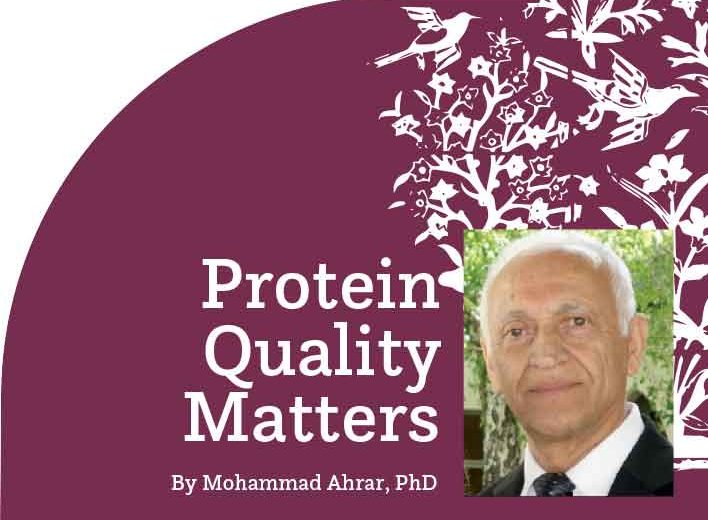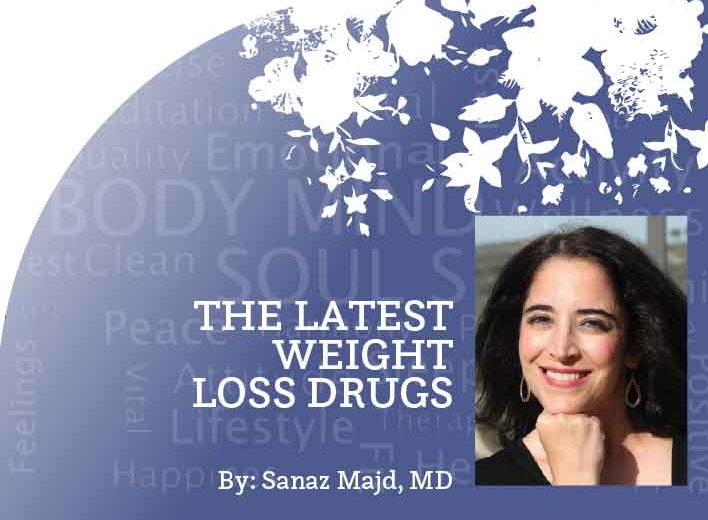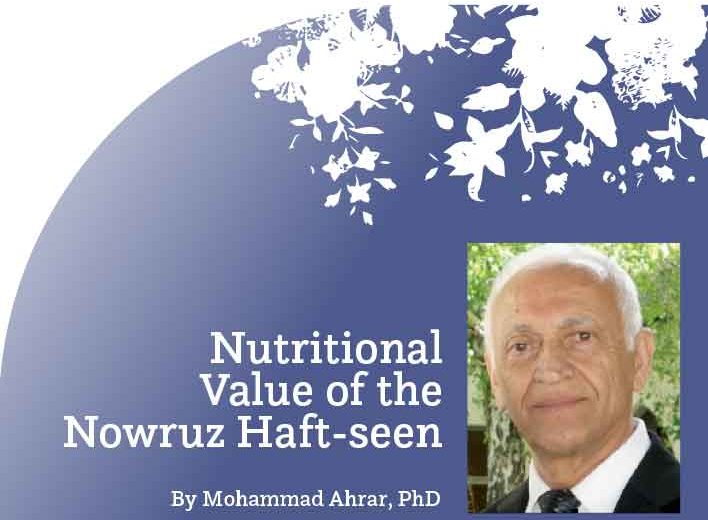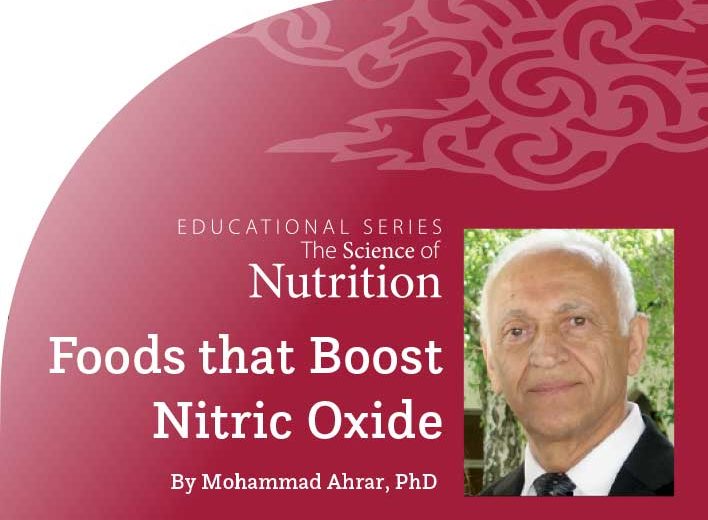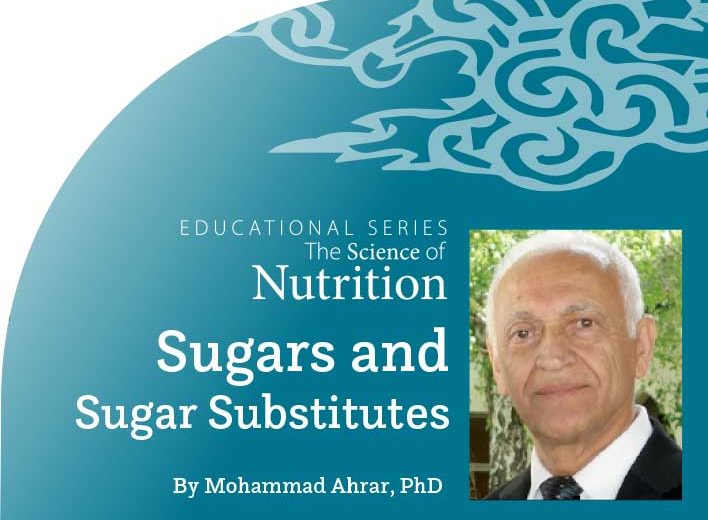Educational Series
The Science of Nutrition
Micronutrients and Your Health: Iron, Zinc, and Iodine
By Mohammad Ahrar, PhD
Introduction
The human body requires macronutrients as well as micronutrients. Macronutrients include proteins, fats, and carbohydrates. They have been discussed in Peyk issues 159, 162, and 165. Micronutrients include vitamins and minerals. Vitamins (except vitamin D) and minerals cannot be manufactured in the body and are therefore referred to as “essential micronutrients” and they must be provided in the diet. In this issue of Peyk, we will discuss a few essential microminerals including iron, zinc, and iodine.

Iron
Major roles Iron is a mineral that is essential for formation of hemoglobin in red blood cells. Each hemoglobin contains 4 iron atoms and each atom of iron can carry one oxygen molecule. There are millions of molecules of hemoglobin in just one red blood cell, and about 5.4 million red blood cells in just 1 cubic millimeter (the size of a pinhead). The function of red blood cells depends on iron; without it, oxygen cannot be carried to the tissues of the body, and human life depends on oxygen.
Do you get enough iron? According to the World Health Organization, iron deficiency is the most common form of micronutrient malnutrition globally. It is more common in women than men. Children and pregnant women are especially vulnerable to the consequences of iron deficiency. In humans, iron deficiency is a leading cause of anemia in which not enough oxygen can be carried to the tissues or organs. Medical studies show that severe anemia during pregnancy can result in poor fetal growth, preterm birth, low birth weight, and increased risk of death for the mother and the baby.
Food sources Iron is commonly found in animal products such as red meat (beef, pork, lamb, goat, or venison), seafood, poultry (chicken or turkey), and eggs. Iron can also be provided from non-animal sources, including tofu, beans, lentils, and dark green leafy vegetables. Studies show that iron from plant sources is less easily absorbed by the body than iron from animal sources. Standard iron-fortified infant formulas contain enough iron to support a growing child’s needs. It is always a good idea to consult with a child’s pediatrician before introducing iron-fortified foods because some children may need more iron than others or some may be allergic to some foods containing iron.
What foods affect absorption of iron? Reports show that when foods containing iron are paired with foods high in vitamin C—such as citrus, berries, tomatoes, broccoli, cabbage, and dark green leafy vegetables—the absorption of iron in the digestive system will improve. On the other hand, the presence of compounds such as phytates, saponins, lectins, and tannins in some foods—such as raw beans, lentils, peas, soybeans, and peanuts—can interfere with normal absorption of iron and other micronutrients. When these foods are soaked in water or cooked (or, in the case of peanuts, when roasted), their micronutrient contents will be absorbed more efficiently.
Zinc
Zinc’s role in the body Zinc is an essential trace element necessary for human health and growth, necessary for activating many enzymes that carry out vital chemical reactions in the cells. It is a major player in the formation of DNA and protein synthesis, healing of damaged tissues, and growth of cells. Zinc is also an essential element for supporting the immune system and helps in resisting some infectious diseases. Because most cells in the body continuously grow and multiply, adequate zinc is required during times of rapid growth, especially during childhood, adolescence, and pregnancy.
Is zinc deficiency common? Zinc deficiency is rare and is seen mostly in people who do not absorb zinc well due to digestive disorders such as inflammatory bowel diseases or who have undergone gastrointestinal surgery. People with chronic liver or kidney disease or who have severe burns and infections are also at risk. Pregnant women require more zinc for the fetus and during lactation. Vegetarians/vegans may also consider zinc supplements in their diet because zinc from plant food sources has a lower bioavailability than in foods from animal sources. Some chemicals such as lectins, found in raw legumes (beans, peanuts, soybeans) and raw whole grains, can interfere with the absorption of zinc. In rare cases, loss of taste or smell, poor appetite, delayed wound healing, and abnormal hair loss could be signs of zinc deficiency. Because illnesses and abnormalities can have similar symptoms, please talk to your doctor if you see any of these symptoms before changing your diet.
Is a zinc supplement necessary? When a variety of food is included in the daily diet, the body usually gets enough zinc, and there is no need for supplements. Because micronutrients are required by the body in very small amounts, the use of any supplement, including zinc, should be under the supervision of your doctor.
What are good sources of zinc? Red meat, poultry (dark meat), fish, and fish products are good animal sources of zinc. Beans, nuts, and whole-grain cereals are good plant sources of zinc. Fortified breakfast cereals and milk can also provide adequate zinc per serving. Although legumes and whole grains are good sources of zinc, if consumed in raw form, the presence of some phytates can bind to the zinc, lowering its absorption.
Zinc toxicity Although zinc has many health benefits, consuming too much of it can be harmful mainly because the body cannot store excess zinc. According to medical reports, excess zinc intake can have adverse effects and can cause nausea and vomiting, loss of appetite, abdominal pain, headaches, and diarrhea. Medical professionals at the Harvard School of Health recommend against taking supplemental zinc unless it is known that the diet is low in zinc or its deficiency is confirmed. Toxicity occurs almost exclusively from zinc supplements, but not from natural foods.
Caution Use of an oral supplementation of zinc can interfere with the effectiveness of some antibiotics, some blood pressure medications can increase the amount of zinc lost in urine, and excess zinc can interfere with the absorption of iron and copper. For these reasons, you should speak with your doctor or health care professional before you start, stop, or change your diet, and before using a zinc supplement.
Iodine
Iodine is an essential trace mineral that naturally occurs in the earth’s soil. It is also known as iodide which is the most common form in nature. Like many other trace minerals, the human body cannot produce iodine, which is why it is important to include iodine-rich foods in the diet. When iodine is consumed in the daily diet, it is quickly and almost completely absorbed in the gastrointestinal tract and picked up by the thyroid gland.The thyroid gland concentrates iodine in appropriate amounts for thyroid hormone synthesis; most of the remaining amount is excreted in the urine.
What is iodine good for? Iodine plays a vital role in thyroid gland health and production of thyroid hormones. Thyroxine is referred to as tetraiodothyronine (T4) which contains four iodine molecules. Triiodothyronine (T3) contains three iodine molecules. T4 is the major form of thyroid hormone in the blood, but T3 is much more potent—both forms influence every cell and tissue in the body. Thyroid hormones regulate many important biochemical reactions in the cells, including protein synthesis, enzymatic activity, production of energy and metabolic activity, and physical and mental development. They are also important for proper skeletal and central nervous system development in fetuses and infants.
Thyroid hormones regulate the rate at which calories are burned, affecting weight loss or weight gain. Because the thyroid hormones work at the DNA level in the cells, and iodine is essential for thyroid hormones, an iodine deficiency can adversely affect the functions of all bodily organs.
Sources of iodine Because the iodine content in soil varies, the iodine content of crops in different regions can also vary. In the early 1900s, salt iodization programs were implemented in many countries, including the U.S. Iodized salt is now commonly used as a good source of iodine. Food sources of iodine include fish, oysters, and other seafood, plus seaweed like kelp, which is one of the most common sources of iodine. Fruits and vegetables are not good sources of iodine; the amounts they contain are affected by the iodide content of the soil in which they grow, fertilizer use, and irrigation practices. This variability in turn affects the iodine content of meat and animal products because of its impact on the iodine content of foods that the animals consume. Dairy products contain iodine; amounts vary by whether the cows received iodine feed supplements and additives. Iodine is also present in human breast milk and infant formulas. Plant-based beverages, such as soy and almond beverages, contain relatively small amounts of iodine.
Iodine deficiency Because iodine is essential for the thyroid gland to produce hormones, its deficiency will cause imbalance in thyroid hormones, a medical issue.
Summary
Micronutrients such as iron, zinc, and iodine are necessary for human health. Iron is essential for the formation of hemoglobin in red blood cells to carry oxygen to all organs of the body. Zinc supports the immune system and is a major player in the formation of DNA, which is essential for protein synthesis and healing damaged tissues. Iodine plays a vital role in thyroid gland health and production of thyroid hormones such as thyroxine which is essential for production of energy in the cells.
Selected references
https://www.health.harvard.edu/staying-healthy/micronutrients-have-major-impact-on-health
https://www.cdc.gov/nutrition/micronutrient-malnutrition/index.html
https://www.mayoclinic.org/drugs-supplements-zinc/art-20366112
https://www.webmd.com/vitamins/ai/ingredientmono-982/zinc
https://ods.od.nih.gov/factsheets/Iodine-Consumer/
https://www.medicalnewstoday.com/articles/320891



